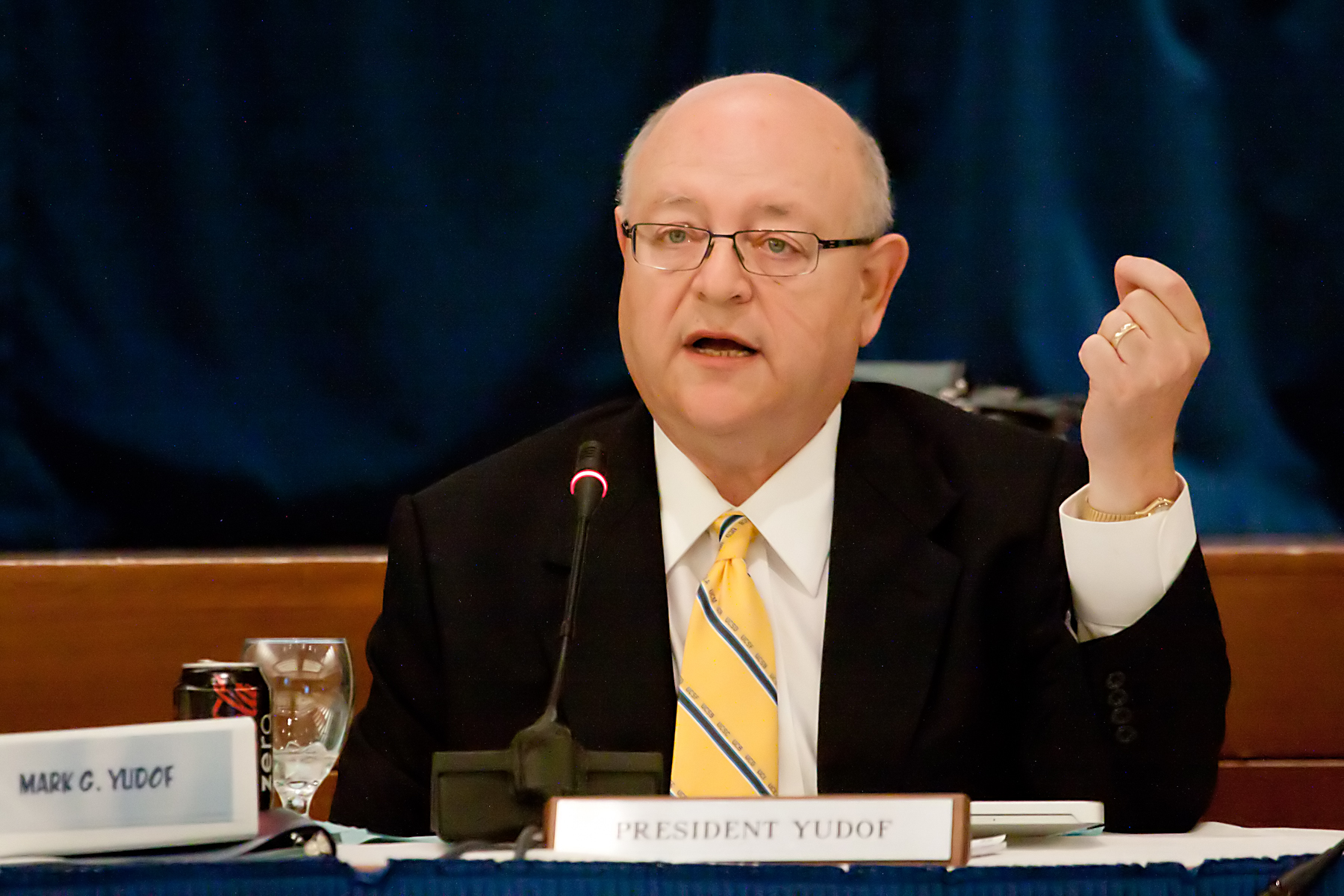UC Board of Regents considers budget options, declines to propose additional fee increases

UC President Mark Yudof discussed issues facing the university system, and his stance on a multiyear budget plan, in his opening remarks at the UC Board of Regents meeting at UC San Francisco on Wednesday.
By Andra Lim
Sept. 16, 2011 2:45 p.m.

UC Regents George Kieffer, center, and Eddie Island, right, share a word during a Committee on Health Services discussion.
SAN FRANCISCO “”mdash; UC leadership is sketching a long-term financial blueprint to deal with plunging state support, but for now, tuition increases are not part of the plan.
The Board of Regents did not back a proposal to raise tuition by a minimum of 8 percent for four years ““ or up to 16 percent if state funds do not materialize ““ at its meeting Thursday at UC San Francisco’s Mission Bay campus.
The lack of consensus means that a strategy for dealing with dwindling state dollars is just beginning to take shape, and some regents are calling for a brand-new funding model.
“As long as increasing student fees are on the table, we are not, in a meaningful way, going to address the problem,” Regent Eddie Island said.
UC President Mark Yudof stressed the need to have a clear plan moving forward.
“For 20 years, tuition has gone up because for 20 years the state’s commitment has eroded,” Yudof said. “There simply is no solution to that.”
Funds from Sacramento have plunged by about 60 percent over the past two decades, and projections show the UC with a $2.5 billion deficit for the next few years. Increasing expenses and contributions to the UC pension make up the shortfall.
Though a four-year plan would ensure financial stability, tuition raises come at the cost of maintaining the UC’s public commitment to affordability and access, said Leslie Osegueda, a third-year political science student.
“Students are getting hit the hardest,” she said. “Some may start to choose private school over public, because at the end of the day, it might be the same price.”
In the proposal’s worst-case scenario, students would pay out about $22,000 in 2015-2016. This would hurt middle-income students the most, as lower-income students are protected by financial aid, several regents said.
The tuition plan is similar to one suggested by Charles E. Young, former UCLA chancellor. Under Young’s proposal, tuition would go up by about 6 percent a year and fund schools’ educational programs. State funds would be used for financial aid.
But a number of regents, including Lt. Gov. Gavin Newsom, rejected a four-year set of tuition hikes, citing the need for a funding structure that does not burden students.
Newsom said that the UC, California State University and California Community Colleges should collaborate to find revenue. He also suggested turning two-year programs into four-year tracks.
The board emphasized gaining public support, which could give traction to a tax measure for higher education on the November 2012 ballot, said Tom Torlakson, state superintendent of public instruction.
Some regents also favored reaching out to the private sector. Regent Richard Blum said that the UC should ask the nation’s largest corporations for $5 billion each in scholarship money. He added that the University of Pennsylvania was able to raise $3 billion for tuition under a similar strategy.
“The truth of the matter is ““ if you look at the world ““ the federal government doesn’t have any money, the state government doesn’t have any money,” Blum said.
Other regents said they did not want to give up on funding from the state.
The UC has an ace in the hole when bargaining with Sacramento, said Regent Norman Pattiz. A recently released study shows that the UC acts as an economic catalyst, supporting one in 46 California jobs.
To further cut costs, the regents discussed time-tried strategies, including philanthropy, out-of-state enrollment and increasing efficiency, which would absorb about $1 billion of the projected budget gap.
Though the state could chop another $1 billion from the UC if extra tax revenues don’t rack up this December, the university will not fill in the hole through tuition hikes, said Patrick Lenz, UC vice president for budget.

